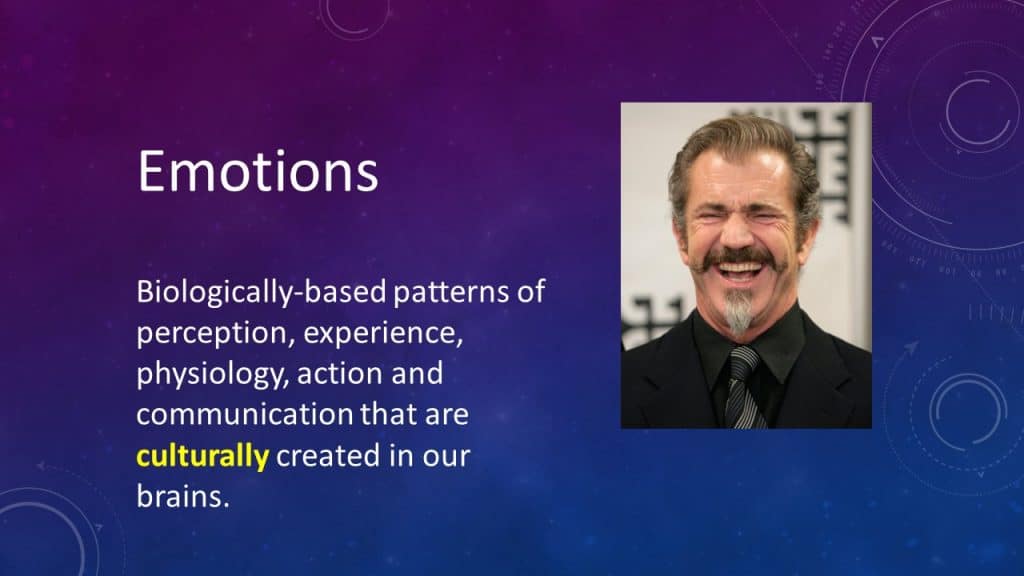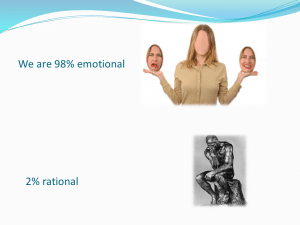Emotional Intelligence in Leadership
In 1990, Professors John (Jack) Mayer and Peter Salovey published two articles on emotional intelligence. The first article reviewed literature in psychology and psychiatry, artificial intelligence, and other areas. It concluded that there might exist a human ability called emotional intelligence.
The idea was that some people reasoned with emotions better than others, and some people’s reasoning was more enhanced by emotions than others.
In 1995, Daniel Goleman, then a science journalist, published his book, Emotional Intelligence: Why It Might Be More Important Than IQ. It became a bestseller, and emotional intelligence entered our lexicon.
Goleman’s 1995 analysis, has been criticized within the scientific community, despite prolific reports of its usefulness in the popular press. The studies supporting Goleman’s claims remain private and have not been peer-reviewed. Thus, continuing academic skepticism surrounds the efficacy of emotional intelligence in leadership.
Goleman asserts that “the most effective leaders have a high degree of emotional intelligence. He claims that “…emotional intelligence is the sine qua non of leadership.”
In contrast, Mayer cautions “the popular literature’s implication—that highly emotionally intelligent people possess an unqualified advantage in life—appears overly enthusiastic at present and unsubstantiated by reasonable scientific standards.”
Thus, as a leader studying emotional intelligence, be clear that it is a controversial topic with little hard science to back up the claims made by uninformed writers on the internet.
Because of the lack of hard science, I focus on emotional competency. Because most people focus on emotional intelligence in leadership, I will use that term throughout this article.
What Is Emotional Intelligence In Leadership?
An emotionally intelligent leader is emotionally mature and emotionally competent. There are five competencies (see below) to be mastered.
What Are Emotions
None of the hundreds of blogs, articles, and academic pieces define emotion. This is a striking omission, but not surprising considering the confusion over definitions of emotion in psychiatry, psychology, and neuroscience.
Emotions are biologically-based patterns of perception, experience, physiology, action, and communication that are culturally created in our brains.

We are not born with emotions. Instead, we create them from basic physiological experiences of pleasure and pain. These experiences are called affect to distinguish them from feelings and emotions. Feelings are the physical sensations we experience with affect. Emotions are the cognitive constructs that allow us to concretize feelings and affect into consciousness.

For over 3,000 years, western culture has claimed that rationality is superior to emotions. In the past 30 years, this claim has been destroyed by neuroscience. Today, we know that humans are 98% emotional and only 2% rational. Devoting time to mastering emotional competency is therefore a worthwhile endeavor.
What Is Intelligence
Intelligence is a cognitive process giving us the ability to learn, form concepts, understand, and reason. It includes the ability to recognize patterns, innovate, plan, solve problems, and employ language to communicate.
Standard intelligence employs logic, reasoning, critical thinking, abstraction, problem-solving, and scenario creation to adapt to new situations and to make decisions.
Emotional intelligence employs self-awareness, self-regulation, motivation, empathy, and social skills to make decisions, collaborate, and cooperate with others.These two intelligences arise from two very different brain systems: a task-focused system that employs standard intelligence and a default mode or social system that employs emotional intelligence. Our culture and our educational systems focus on developing the task-focused system to the exclusion of the social system. The failure of business schools and the business world at large to value and develop both capabilities has resulted in enormous damage ranging from inefficient business operations to unethical decision-making.
Why Emotional Intelligence in Leadership Is Essential
Research has shown that focusing solely on completing tasks — or on the bottom line — squashes creativity, hinders ethical insight, openness and new ideas, and harms employee morale.
Being an emotionally competent leader can increase employee motivation and engagement, encourage creativity, and is essential for ethical decision-making.
Leaders can only get things done through people, so paying attention to relationships is important. Think about it. If we are 98% emotional, where should a leader be focusing attention when guiding, motivating, and developing a team? Successful leaders focus on improving their emotional competency.
The 5 Basic Competencies
Leadership effectiveness depends on the mastery of emotional competency. These are skills you can learn and practice over a lifetime.
Emotional Self-Awareness

What It Is
Emotional self-awareness is your ability to recognize and name your emotions as you experience them. People who are open to experience, good at accessing emotions (that is, those who are empathetic), and those with a vivid imagination, usually have very high emotional self-awareness.
People who block emotions, are emotionally constipated and generally fight against negative feelings are generally unaware of their emotions. They choose consciously or unconsciously to not feel, because it is too painful. Consequently, they tend not to feel much at all and have low emotional intelligence. Unfortunately, the vast majority of adults fall into this category of self-awareness.
How to Develop It
The fastest way to develop emotional self-awareness is to practice a listening skill called affect labeling. Unlike other forms of listening, affect labeling requires that you ignore the words and focus solely on the emotions of the speaker. As you recognize those emotions, you reflect them back with a simple “you” statement. Here’s how you would affect label an angry colleague:
“You are angry and frustrated. You feel disrespected. No one is listening to you, and you feel unappreciated.”
While this seems simple enough, experience has shown that affect labeling is counter-normative and counter-intuitive to people who are not emotionally aware. The easiest way to master this skill is to take a course in de-escalating strong emotions and enroll in online coaching.
Emotional Self-Regulation
What It Is
Emotional self-regulation is the ability to calm yourself down and to resist impulsive behavior. Consider this problem:
Debbie just came back from vacation. She was feeling peaceful and content. How well would each action preserve her mood?
Action 1: She started to make a list of things at home that she needed to do.
Very Ineffective..1…..2…..3…..4…..5..Very Effective
Action 2: She began thinking about where and when she would go on her next vacation.
Very Ineffective..1…..2…..3…..4…..5..Very Effective
Action 3: She decided it was best to ignore the feeling since it wouldn’t last anyway.
Very Ineffective..1…..2…..3…..4…..5..Very Effective
A score of 3-9 indicates low emotional self-regulation. A score of 9-11 indicates moderate self-regulation. A score of 12-15 indicates high self-regulation.
Leaders who self-regulate take responsibility for their feelings. Despite emotional pain, they can make themselves feel better. They can think about an event from different perspectives. Such leaders are skilled at regulating emotions to make well- balanced emotional decisions.
Leaders with poor self-regulation are prone to misread a situation, blame others, feel victimized, feel others hurt them, get angry or withdraw, and want others to do something to make them feel better.
How to Develop It
Emotional self-regulation develops through the practice of self-affect labeling. When you self-affect label, you consciously name the emotions you are experiencing in the moment. Suppose you are mad at a colleague. Rather than screaming at her, you would say to yourself:
“I am really angry and pissed off. I feel frustrated and disrespected. I feel ignored and unappreciated. I feel betrayed. I’m sad that this relationship is not working as I expected.”
Brain scanning studies show that self-affect labeling calms the emotional centers of your brain and brings your prefrontal cortex back online.
Motivation
What It Is
Motivation is the ability to override negative emotions associated with a task to complete the task. These blocking emotions could be boredom, anxiety, fear, overwhelm, sadness, and anger. Your brain resists the task because the task is calling for a heavier metabolic demand.
Our brains evolved to find the easy way out. If a task becomes too difficult, our brains will send out signals that we construct into emotions telling us to stop. Motivation comes from impulse control in the prefrontal cortex and overrides these negative emotions for the reward associated with completing a difficult task.
A classic study of 4 year-olds illustrates the problem of motivation. In the experiment, a child sat at a table with a big cookie on a plate. The child could have two cookies if she did not eat the cookie in front of her until the adult returned.
Follow-on studies during the child’s school years revealed that kids who resisted the temptation to eat the cookie (delayed gratification) had much greater scholastic success than children who ate the cookie (immediate gratification).
Here’s a YouTube of a reenactment of the experiment. Try not to laugh too hard.
Impulse control is nothing more than the discipline of putting off immediate gratification for a greater delayed ratification. You must learn to use your prefrontal cortex to override the emotional centers of your brain. The mindset you use for that process is called motivation.
Motivating Yourself
Once you understand that you have unconscious centers of your brain sabotaging your desire to accomplish a goal, you can engage in a number of easy strategies.
First, self-affect label yourself to bring your resistant emotions into consciousness. You might say to yourself:
“I’m frustrated and tired. I am feeling overwhelmed. I don’t feel supported.”
Second, change your perspective. Instead of focusing on the pain pushing you to abandon the task, focus on how you will feel when you achieve your goal. Imagine yourself successful and allow yourself to feel the pride of accomplishment. Your imagined emotions will usually defeat your desire for instant gratification.
Third, take breaks. An increased metabolic demand from effortful thinking causes the unconscious sabotage. Give your brain a break. Eat some healthy fat, which your brain can metabolize without a sugar high and crash. Avoid sugar, sodas, diet sodas, and other processed foods. Get up and walk around. Jump on your exercise bike. Distract yourself from the pain of the moment.
Fourth, prevent overwhelm by breaking your tasks into tiny pieces. When I practice jazz and blues violin every day, I don’t look at the big picture because it is just overwhelming. Instead, I choose some small exercises that might be difficult, but are not overwhelming. I work the exercises. On the first day, I suck. By the 14th day, the exercise has gone from hard to “why was that such a big deal?” Having the patience to know that big accomplishments come over long periods of time helps. You don’t have to get it all done today.
Finally, celebrate progress. When you see some improvement, smile, and pat yourself on the back. Affect label yourself to validate your emotions. “I am proud of that. I feel good. That sounded really cool.” Ignore the childhood teaching that pride is evil. You have to feel proud of what you do. Parents who fail to teach their children the proper use of pride as motivation are depriving them of the ability to self-motivate.
Motivating Others
Motivation is a strategy for overcoming painful signals from our brains when engaged in a challenging task. As a leader, you sometimes have to help your team members motivate themselves. If you are someone who resists the idea that emotions are important, think again. Emotional intelligence in leadership requires you to know the importance of emotions in team behavior, decision-making, and task performance.
First, listen your team members into existence. This is the phrase I use to describe the effect of affect labeling. When you listen to your team members’ emotions and reflect those emotions back, you deeply validate them. This builds psychological safety and trust in your team. Research shows that psychological safety is the single most important factor for increased performance in teams,
Second, coach for improvement. Never expect perfection, just incremental improvement. I teach a coaching model that works as follows:
“John, you delivered a precisely written report on time. Keep doing that. Next time, you might consider shortening your sentences to make your reports more readable.”
The first part of the coaching statement reflects one specific and positive aspect of performance. The second part of the coaching statement offers a specific suggestion for improvement. This an effective and powerful way to improve performance and motivation.
Third, help your team develop a growth mindset. Instead of telling your team they performed poorly, tell them “Not yet.” In other words, encourage hard work, diligence, and persistence in the face of a difficult challenge.
Finally, learn and master the principles of adaptive leadership. Since one of the four principles of adaptive leadership is emotional intelligence, you are already on your way. When you apply adaptive leadership principles, you will reframe tasks and objectives to make them less overwhelming. You will provide your team with the emotional resources needed to meet the challenge. You will keep your team on task and guide them away from work-avoidant behaviors.
Empathy
What It Is
Empathy is the ability to accurately recognize and reflect the emotional experiences of another person. You have been introduced to affect labeling, which the most powerful form of empathy. Emotional intelligence in leadership requires that you develop and practice empathy.
This does not mean that you are soft or a pushover. Using empathy as an emotionally intelligent leader means that you understand the role of emotions in human behavior. Every one of your team members is a highly emotional being and you will not get their best efforts unless you understand their emotional experiences.
How to Develop It
Empathy is a skill that must be learned and practiced. We do not naturally engage in empathy because, as I wrote above, western culture eschews emotional competency for rationality.
The fastest way to develop empathy is to learn how to affect label. With practice and coaching, you can master affect labeling in 6 to 10 weeks.
Social Skills
What It Is
Social skills as a part of emotional intelligence in leadership is a catch-all for basic interpersonal skills not cover in the other competencies. These skills include the ability to negotiate with distributive and integrative processes, the ability to mediate conflicts, the ability to conduct efficient, productive meetings, the ability to manage disruptive team members without shame, bullying, judgment, or isolation
How to Develop It
The fastest way to develop these social skills is to take online classes. Because these are practice skills, you will need instructors to show you how to negotiate, mediate, run meetings, and manage disruption. Emotional intelligence in leadership requires to you to be a life-long learner in all of these skills.
Emotional Intelligence in Leadership is About Emotional Competency
One my biggest peeves is the term “soft skills.” This is a pejorative term applied in the business community to the foundational skills necessary for effective team performance. As I have pointed out, emotional intelligence in leadership is based on developing emotional competency. Emotional competency is based on neuroscience, not outdated ideas from pop psychology. It doesn’t get much harder than brain science!
When you hear the term “soft skills” applied to emotional intelligence in leadership, know that the speaker is (1) probably emotionally incompetent, (2) is afraid of developing emotional competency, and (3) is giving you free of charge a huge competitive advantage. You don’t turn down those opportunities when they are handed to you.
Finally, emotional intelligence in leadership is not an outcome. It is a life-long journey of learning, experimenting, failure, success, and satisfaction. It is as much a mindset as it is a set of skills. Keep practicing and growing and your leadership will be deeply rewarded.

[…] This article has been reprinted with permission from Doug Noll’s page. […]
[…] Emotional Intelligence In Leadership: 10 Ways to Massively Grow Your Effectiveness […]
[…] you have to model your emotional competence and practice it so that you can demonstrate to your team that you are an emotionally competent […]
[…] continuing academic apprehension surrounds the effectiveness of emotional intelligence in leadership.Goleman asserts that”the most effective leaders have a high degree of emotional intelligence. […]
[…] emotionally competent leader can read team emotions. This guides a leader in deciding how to approach tasks, motivate team […]
[…] continuing academic skepticism surrounds the effectiveness of emotional intelligence in leadership.Goleman asserts that”the most efficient leaders have a high degree of emotional intelligence. […]
[…] continuing academic apprehension surrounds the effectiveness of emotional intelligence in leadership.Goleman asserts that”the most effective leaders have a high degree of emotional intelligence. […]
[…] Here’s another article on leadership and emotional intelligence. […]
Hey Winslow. Leadership skills have to be learned just like everything else. There is no such thing as a born leader. I’m thinking about putting together a leadership basics course here if there is enough interest.
Wow, it’s relieving to realize that good leadership is something you can learn step by step. Leadership summits and leadership books tell you what skills you generally need to be a successful leader (ie, communication, team development, strategic thinking, etc), but they never speak to the HOW. I’ve always thought that you’re either born a good leader or not. As for myself, I like to think I have good social skills, but I shied away from conflict. It makes sense that the “soft skills” of leadership are actually the key and foundation to being a good leader.
I’d love to hear your reaction to this article. I’ll reply back with my response. Leave your comment below.